I’ve been getting a ton of questions about a recent study suggesting organic produce and meats are no more nutritious – and no better for you – than non-organics. Is this true, and does it matter if you choose organic foods over non-organic foods, or are you just wasting your money? Let’s break down the recent news and look at the many reasons why organics actually do, indeed, make a difference.
About the Study
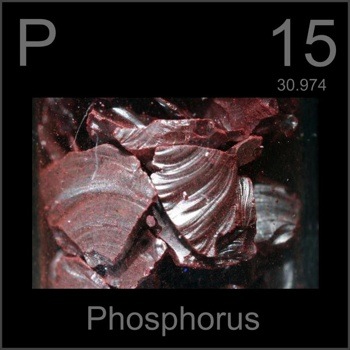
The study was actually a meta-analysis based on a review of existing literature and studies. It contained no new information, even though many media outlets are touting its findings as new and groundbreaking. In the meta-analysis, researchers examined 17 human studies, with three examining clinical outcomes. They also evaluated 223 studies of nutrient and contamination levels in food.
The existing studies contained conflicting conclusions. Some of the studies they reviewed showed organic foods to be more nutritious. After all, organic produce tends to be grown in higher quality, more mineral-rich soil. Others showed it wasn’t. The net result of the analysis was that organic food and non-organic food was about even nutritionally (that is, in terms of the vitamins and minerals the foods contained), although organic foods did contain higher levels of phosphorus. Phosphorus makes up about 1 percent of human body weight, and is essential for building strong bones and teeth. It is also one of the basic materials found in every cell in the human body, and it helps with energy production, cell growth, and protein synthesis.
Other findings from the meta-analysis include
- Organic produce contains less pesticide
 contamination than conventional produce.
contamination than conventional produce. - Higher levels of antibiotic resistant bacteria are found in non-organic pork and chicken than organic varieties.
- Organic chicken contains higher levels of omega-3 fats than non-organic.
- Two studies analyzed showed significantly lower pesticide levels in the urine of children eating organic foods than in children eating non-organic foods.
- The meta-analysis also concluded, “Consumption of organic foods may reduce exposure to pesticide residues and antibiotic-resistant bacteria.”
Beyond Nutrition
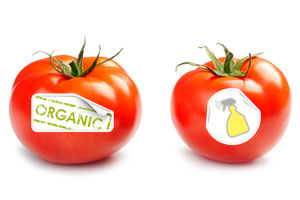
There’s no doubt that the vitamins and minerals in the foods you eat make a difference in your overall health. So even if this meta-analysis showed these levels to be about even, that doesn’t mean that consuming organic foods doesn’t have a more positive effect on your health than non-organics. Beyond nutrition, choosing organic versus non-organic foods affects many aspects of human life and health, including:
- Local economics
- Environmental health and safety
- Human toxicity
Toxicity
I talk a lot about toxicity in the human body in The Beauty Detox Solution. The meta-analysis cited above didn’t dispute that organic foods contained fewer pesticide residues than non-organics, and that’s a big deal. As our bodies fill with toxins from a lifetime of consuming pesticide residues, chemicals, and processed foods, it can slowly begin to function at less than peak capacity. You’ve often heard me give describe that toxic buildup as gunk that clogs the spokes of a wheel until it eventually begins to roll along less smoothly.
While you may notice no immediate effects of pesticide residue consumption, over the long-term your body will function less efficiently. This build-up of toxicity can show up in any number of ways that harm your health and beauty. To name a few:
- Dull hair and skin
- Nails that break easily
- Acne and other skin problems such as rosacea or eczema
- Autoimmune disease
- Chronic illnesses such as asthma, arthritis, or GERD
- Decreased energy levels
- Weight gain
- Liver scarring
- Life-threatening illnesses such as cancer and heart disease
- Developmental disorders
- Genetic mutations
While pesticides aren’t the only chemical contributing to your overall toxicity, they play a major role.
Environmental Health and Safety
Conventional farming and ranching has a significant impact on the environment. Use of fungicides, pesticides, and herbicides on plants diminishes soil quality and leads to persistent soil contamination. Many pesticides currently used in farming are considered persistent organic pollutants (POPs), which build up and multiple in biological entities (including human) with a significant impact on endocrine and reproductive health and immunity. These POPs don’t degrade over time, and spread rapidly through the food chain.
Likewise, pesticide use harms many animal species. It has been implicated in colony collapse disorder, a serious condition reducing the number of bees available to pollinate plants. Colony collapse disorder presents a very serious threat to worldwide food supply.
Pesticides are also finding their way into our water supply, harming aquatic life and presenting a threat to human health. They also are responsible for creating evolved species of pests that have adapted for pesticide resistance, leading to greater use of pesticides and/or hardier and more persistent species of pests that affect plants.
Genetic modification is another problem with non-organic produce. The USDA guidelines for organic foods currently permits no genetically modified crops to be labeled as organic. Genetic modification is a relatively recent practice in agriculture – starting in about 1996. Because of this relatively short history, no health studies exist examining the long-term effects of GM foods on humans; however, mammal studies show disturbing trends including adverse effects on kidneys, liver, heart, adrenal glands, and many other organ systems throughout the body. Choosing organic foods is the only way to know for sure you are not consuming genetically modified foods.
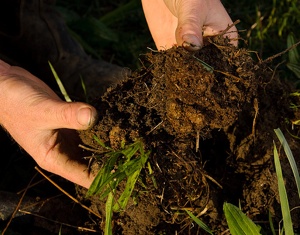 This is just the start of a list about all of the environmental impacts of non-organic farming. Other environmental impacts include:
This is just the start of a list about all of the environmental impacts of non-organic farming. Other environmental impacts include:
- Antibiotic resistance from feed animals feed antibiotics
- Fetal development problems in all species
- Soil depletion
- Air and groundwater pollution
- Harm to endangered species
- Hormonal changes in animals
- Contamination of drinking water
Local Economics
There is an economic impact to non-organic farming, as well. Many conventional foods are produced in giant factory farms run by mega-corporations. Small, family farmers cannot compete price-wise with these huge conglomerates, and many have been forced out of business.
While many giant, organic factory farms also exist, when you choose locally grown, seasonal, organic produce you are supporting small family farms that were once the backbone of the American economy. These farmers still contribute to local economics, and many engage in environmentally friendly, worker friendly, and sustainable practices. Selecting local organic foods also indicates you are choosing foods that are fresher and in-season, which means they taste better, as well. Purchasing foods from local farmers also decreases the distance food has to go from farm to table, reducing carbon emissions and use of fossil fuels.
You can find local, organic foods at nearby farmers’ markets, produce stands, or by joining a community supported agriculture program.
The Bottom Line
While many feel the recent meta-analysis fuels the ongoing debate about organic foods, the fact is that organics have far more benefits than the strictly nutritional. Nutrition is extremely important, and organic foods are packed with essential vitamins, nutrients, and enzymes you need for good health.
Of extreme importance, organic foods respect the environment, have fewer toxicity-related health risks, and support local economies. I for one, firmly stand behind the decision to choose organic. I believe you vote with your purchases, and when you choose organic you choose to support a healthy, clean earth, and put healthy, clean produce into you and your family’s bodies.


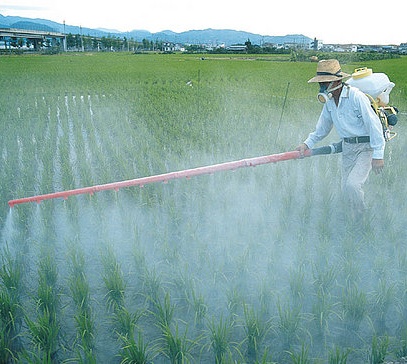
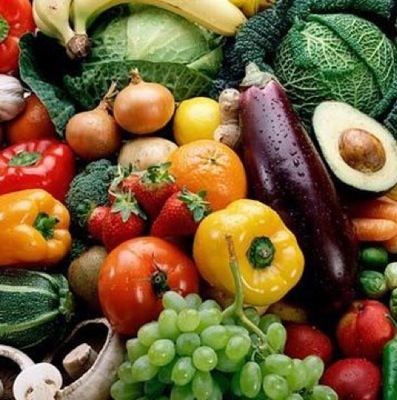

Many people I know will say, ‘you get what you pay for’ when it comes to shoes, clothes and furniture etc. However, when the subject of organic food comes up, I am often told that I’m being fussy or pretentious! I don’t understand what is so radical about wanting to eat clean, non toxic food. I would never turn down a meal that was not organic as that would be rude and ungrateful.
true. clean food should be our top priority
I was really upset when they dd this report, Because when buying organic foods I’m not looking for a more nutritional product. Im lookin to NOT fill myself and my family with toxins. I know that nutritional wise yeah, it’s the same, but organic isn’t going to give me cancer! I am so glad to read this and I will pass this on.
Great post Kim! I’ve been anxious to see your reaction to this so-called “new” research….thanks for giving us talking points to use when others try to undermine our choice to buy/eat organic.
I appreciate your analysis, but I’d like to add a bit. The researchers who conducted this study said absolutely zero about cost, the environmental impact, exposure to pesticides and/or antibiotics or the moral dilemma generated by factory farming methods. The science simply indicates that, in terms of nutrition, there’s no significant difference between the tomato from the conventional farmer and the one at the organic farmer’s market. I really wish people would stop taking science out of context and expecting scientists to give them “cold, hard facts” about moral ideology and personal preference. While I agree with about 90% of what you say, I’m a bit put out that you continue to use words like “implicated” and “associated” in regards to scientific data/ideas. Your book is chock full of peer-reviewed science (the China study), and that’s a part of what I enjoyed about it, so please don’t join the bastions of blogs that spew opinion based on circumspection. Lastly, the story on GMOs is still very much out. A recent PubMed literature search (NIH funded peer-reviewed papers) produced exactly one study that implicated GMO corn with an increased allergic immune response, and that was a 90 day study in rats (I believe I found the same one to which you link…and it IS the only one). At 30 days there was a response and at 60/90 days, it was gone. I don’t call that anywhere close to enough data to make assumptions one way or the other. In the interest of full disclosure, I will say I don’t buy organic all the time. If it can be thoroughly washed and/or peeled (in the case of fruits and vegetables), I save my money and do just that. I love your blog, your book and your desire to reach the masses with sound nutrition and improve health, but please be that person who tells the whole story!
I would question who paid for this study, and the timing. The sales of organic and local foods has risen sharply over the last year or two. In my view big business is looking for rhetoric to keep forcing pesticide laden GMO food down our throats so they can continue to line their coffers.
I’m with you Debbie, Who paid for the study??
Just looked at the study author’s disclosures or possilbe conflicts of interest and it appears there are none Debbie. No money paid to her no grant money no payment for her services etc…It looks clean. But I did look further into the study design and there are flaws EVERYWHERE. One major one that stands out. There were no standards for what foods were included in the “organic” catagory. In other words Reuters reported many of the studies had no clear understanding of what constituted “organic”
The study was authored by a researcher whose work was funded by the university she works for (Stanford). It was not funded by any outside group. The real problem isn’t who funded the study, it is the way the media is portraying the results as if there are no potential benefits to buying organic over non-organic foods.
Agree too! What I love is that even though the FDA isn’t
requiring GMO food to be labeled is that it’s happening by default with so
many companies now labeling their products ‘Non GMO’. So if a product doesn’t
say it’s Organic or that it does not contain GMO there is a good chance that it
does.
Vitamins/minerals aside I feel certain the studies (majority anyways) in the Meta Analysis did not research PHYTONUTRIENTS which most scientists agree prevent disease and protect health. Now here’s something to compare in organic vs. non-organic foods. Also one last thing, call me cynical but I believe studies can be designed to “say” what the financial backer of the study wants to expose by the manipulation of statistical factors.
The lab that did this meta-study is a well-respected lab from Stanford University that had no financial conflict of interest. The study was completely unbiased. And the lead scientist was actually very surprised by the findings because she expected that organic food would contain more nutritious. Just FYI.
The big chemical companies that produce dangerous pesticides often either provide funding for such studies, or use their own research groups to create such studies. Their executives have close relationships with those on the boards of such companies. Do you think they want to lose business because the buying public is demanding cleaner food? Of course not. They would like to kill organic farming forever because they want to control our food supply, even if they know their products aren’t safe. It’s like the study that showed high fructose corn syrup (cleverly renamed “corn sugar”) is no different from any other form of sugar. That study was paid for by….the Corn Growers Association. Studies like this only strengthen my resolve to eat clean food.
Ok. I got the message and support organics for my family and myself.
Great post! Can’t companies lie about the produce though? Label it organic but really its not?
I heard Dr. Crystal Smith-Spangler, who was a part of this study, on xm radio yesterday. She was super evasive and would not answer a caller’s question of why someone would choose to eat food (conventional food) that has more pesticides instead of organic. Her typical response was “the USDA says conventional food is safe what you choose to eat is up to you”. I wanted to get through to ask her what she personally eats. I highly doubt she eats commercial and I do get the feeling, as Debbie Florio mentioned, that this came out now for a reason. She was just too evasive. If she really had conviction in the study, she would be able to elaborate more on why she believes commercial food is essentially just as good as organic. And I highly doubt the accuracy of the study. My study is knowing that you can taste most any commercial food next to organic and organic tastes so much better that you know it is so much more beneficial for you. And you can actually smell the goodness. That’s all the proof I need. As far as expense goes of buying organic, try to buy what is on sale. It may still be more but usually not by much and you get vibrant health instead of doctor’s bills.
If there is an organic option I am willing to pay top dollar for it, to avoid chemical toxins and to avoid GMOs. I also know that organic HAS TO be more nutritious. Thanks, Kimberly, for this post. I’m sure that there are a lot of people out there who blindly believe whatever they hear in the news and you’ve shed some light on this issue.
It really make sense to me that organics are better for you and I will continue to buy some of them especially if they are thin skinned fruits and veggies!
That study was worthless on the basis of this statement that was made:
“There were no long-term studies of health outcomes of people consuming
organic versus conventionally produced food; the duration of the studies
involving human subjects ranged from two days to two years.”
The effects on individuals cannot be accurately assessed in two days to two years: this study needs to be done after 25 years: no question the
evidence would overwhelmingly support an organic diet over a non-organic one.
It’s too bad rubbish like this is ever published.
Yes, we all want food w/o poisons; unfortunately at 2-3 times the price for organic, how do you suggest the average family can afford this?
You forgot to mention that organic foods do are not GMO
I have been on the fence for a bit. Thanks. it’s organic for me now!!
Thank you for going deeper into this since many of us dont have the wherewithall or time to donso!
What is the difference between toxins in non-organic foods and toxins in cigarettes? I had smoked a lot when I was younger, but now I limit it to having a couple of cigarettes on Thanksgiving day, (when I get home); as it’s something that I look forward to as I have to be around a very obnoxious sister for the Thanksgiving festivities! In addition, is it true that all food was organic up until about fifty years ago? I think we fooled with “mother nature” too much, and all these chemicals are causing us health problems! Kim, you write very well, and I look forward to reading future articles!
What is the exact name and location of this presumed “study”? Would be nice if these claims could be traced back to research published in a peer-reviewed, evidence based scientific journal rather than making artificial claims via Yahoo News!
Here you go! You will need a university library ID to access the full paper.
https://annals.org/article.aspx?articleid=1355685
the study was funded by Stanford. no outside source. i checked. and this was review of studies not an actual study itself.
the last paragraph:
“In summary, our comprehensive review of the published
literature on the comparative health outcomes, nutrition,
and safety of organic and conventional foods identified
limited evidence for the superiority of organic foods.
The evidence does not suggest marked health benefits from
consuming organic versus conventional foods, although organic
produce may reduce exposure to pesticide residues
and organic chicken and pork may reduce exposure to
antibiotic-resistant bacteria.” may is just a filler…. the media and its hype!
The definition of an “Expert” is someone who started before you did – which is why I always prefer my personal experience over any expert bs.
So, in my experience:
Organic collard greens = delicious, non organic = inedible
Organic Swiss Chard = vibrant hearty leaves, non organic = a mushy mess
Organic Kale = crispy yummy leaves non organic = wilted crappy leaves
so, I buy organic
Kim, i have dull dry hair, and i have prone acne, what shampoom/conditioner do you recommend, and also what do suggest for dry skin, i use a tea tree soap but iit dries my skin out, what body wash, gel or soap would u recommend… i use organic virgin cocnut oil as a moisturizer after showers & sometimes before bed. also i would love it if you could recommend a deoderant to use and toothpaste, i used a deoderant called Lavillan, its free of aluminum, ammonia & other chemicals, and i used nature gate toothpaste without flouride because im agaisnt using or drinking it… thanks so much!
i honestly think organic food’s are essential anyways